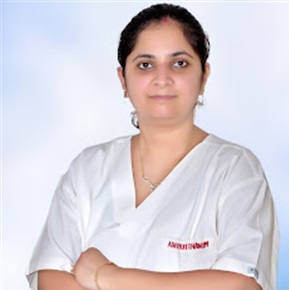Endometriosis is a condition in which cells from tissue inside the uterus (womb) grow in places outside the uterus. These cells settle on or in the fallopian tubes or ovaries, and sometimes on or in other organs in the pelvic area, including the abdomen and bladder. The cells clump up, become inflamed and eventually develop into adhesions (scars), which cause pain. In some cases, the condition leads to infertility, known as endometriosis infertility.
The cause of endometriosis is not yet known. Some women may be born with this abnormality. Some women may be born with a tendency to get endometriosis during their reproductive years. Medical researchers have suggested that during menstruation, menstrual fluid backs up through the fallopian tubes into the abdomen where cells from the fluid become embedded and begin to grow. There are a number of other theories for its prevalence.
Studies have shown that between 5% and 10% of all women have endometriosis, but most of these women are fertile. Some 30% to 40% of women with endometriosis are infertile. In most cases, endometriosis infertility is temporary. Women with endometriosis do have children. They just have more difficulty getting pregnant than other women have. Best Gynecologist in Kota
In most cases, it's difficult to pinpoint why a woman with endometriosis has trouble getting pregnant. Some researchers think that infertility and delayed pregnancy might make a woman susceptible to developing endometriosis, rather than endometriosis causing infertility. Some researchers believe there are multiple causes of endometriosis infertility and that each woman who suffers this disorder has her own set of contributing factors.
Studies have shown that the likelihood of a woman suffering endometriosis infertility is directly related to the severity of her condition. Most cases of endometriosis are mild, with little or no pain. Nevertheless, woman with mild endometriosis take longer to get pregnant than women in general do. Women with moderate to severe endometriosis have even more difficulty getting pregnant than women with mild endometriosis have.
If severe enough, endometriosis can damage one or more of the woman's reproductive organs. As the condition worsens, the adhesions formed from the clumps of cells grow thicker and larger in or around the reproductive organs. In general, adhesions that stick to or push against a reproductive organ deform the structure of that organ and impact its normal function. This contact, medical researchers believe, contributes to endometriosis infertility.
For example, adhesions in the fallopian tubes can nudge the tubes out of their normal position, thus preventing the egg from the ovary from entering the tube. Or the adhesions might block the inside of the tubes, keeping the egg from traveling to the womb. Thick adhesions on or in the ovaries can form painful cysts and sometimes prevent the egg from escaping. They can also reduce the number of eggs in the ovaries and damage remaining eggs. And inflammation in the pelvis caused by adhesions can trigger the production of certain cells that attack and shorten the life spam of the sperm. Laparoscopic Gynecologist in Kota
Common treatments for endometriosis infertility include drugs to control pain and to stop the endometriosis from getting worse and surgery to remove the adhesions. But surgery often creates its own adhesions. The Wurn technique, a hands-on procedure used by physical therapists, has proven effective in breaking down and eliminating adhesions and, in many cases, restoring fertility without drugs or surgery.





Comments